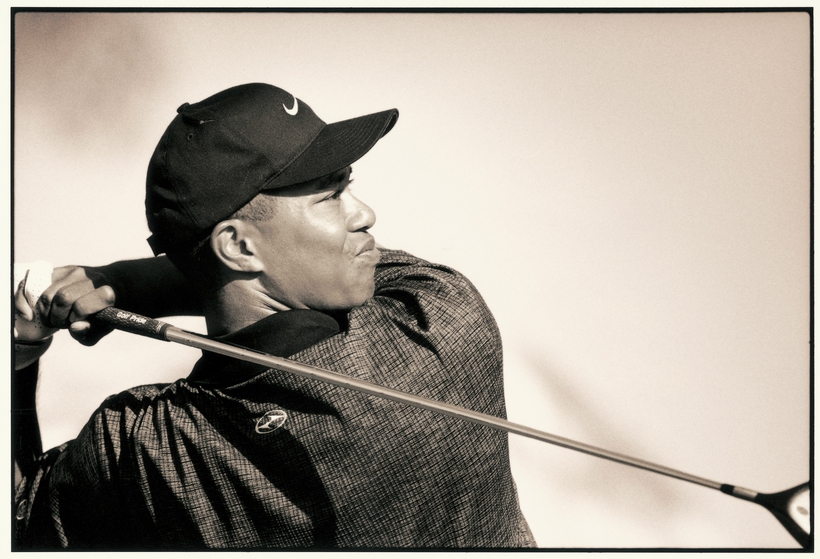Over the last few years, golf fans have been served a rigid narrative of the Tiger Woods Comeback Story. Even the most casual sports fan has tasted it: a 45-year-old star golfer overcomes his well-documented troubles on and off the course to win the 2019 Masters and continue his pursuit of Jack Nicklaus’s Majors record. HBO’s Tiger reminds viewers of just how Icarian his fall from the greatest heights of sports superstardom really was, and how uncertain his return to his previous dominance remains.
The two-part documentary attempts the impossible task of covering the complete story of Tiger Woods in just a few hours. Through archival footage and new interviews, the film explores the enormous expectations of Woods’s parents, who willed him to conquer a sport and change the world; his relationship with race as a black athlete dominating an overwhelmingly white sport; and the contrast between his public posture as a walking brand, one that generated $100 million in revenue every year, and his hidden struggles with a life deprived of privacy. Fresh light is shed on the loss of Woods’s father—a loving but flawed parent whose chronic infidelity trickled down to his son—and his many coping mechanisms: sex, drugs, competition, and extreme exercise including military training. The movie appropriately feels like a time lapse of a long, rough voyage across choppy waters.
The contrast between his public posture as a walking brand and his hidden struggles with a life deprived of privacy.
Riding on the coattails of ESPN’s successful series on Michael Jordan, Tiger comes up a few rolls short in that it tries to tell a story that is far from over, because it is about two things Woods is still doing: playing golf and being a parent. (Woods has two children with ex-wife Elin Nordegren; the pair divorced in 2010, after revelations of Woods’s affairs.) The golfer’s role as a father, which was not explored in depth in the film, feels even more relevant as we approach the one-year anniversary of the tragic deaths of Kobe Bryant and his young daughter Gianna, especially devastating as Bryant, much like Woods, had recently begun to focus on his children after a long career dedicated to a cold and unflinching pursuit of sports greatness.
Several members of the golf media have criticized the film for being too harsh on Woods, saying it highlights his flaws while dedicating too little time to his athletic dominance. But golf fans can get that type of content everywhere else they look. Perhaps media discomfort with the film is because, by extension, it is somewhat critical of them. As an old family friend of Woods’s says at the end of Part II, premiering January 17, the people who are selling you the narrative about the virtuous new Tiger are the same people who delighted in tearing him down when he didn’t conform to the mold they built for him, and “it’s bullshit.”
Tiger is available to stream on HBO
